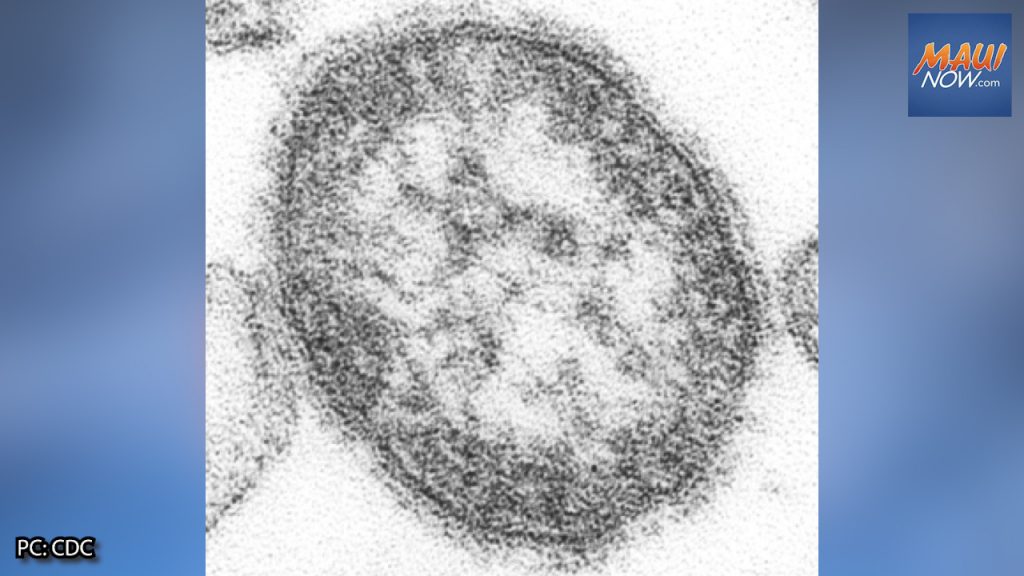DOH continues measles exposure monitoring

The Hawaiʻi State Department of Health continues to respond to a confirmed measles case in an Oʻahu child and a presumptive case in an adult member of the child’s household. Both individuals were exposed during international travel. The child has fully recovered. No new suspected measles cases have been reported as of April 14.
As of April 14, DOH has identified 92 individuals who were exposed to one or both cases and has been able to reach 88 of these contacts. Most have been vaccinated against measles or have other evidence of immunity to measles. Contacts without evidence of immunity have been instructed to isolate at home and are under active monitoring. As of today, 10 people are in this category.
There may be individuals who were exposed in public settings and are not known to DOH. DOH has identified all exposed contacts from all exposure locations except the Daniel K. Inouye International Airport. Members of the public may have been exposed to measles if they visited the following locations during the specified times:
Daniel K. Inouye International Airport (HNL)
- C gates, customs and baggage claim area on March 30 between 10:50 a.m. and 2 p.m.
- Terminal 2 departures, TSA checkpoints, and gate area for Delta flight 309 to Atlanta, Georgia, on April 4 between 1 and 7 p.m.
Note: Symptoms may appear up to 21 days after exposure.
Individuals who may have been exposed and develop measles symptoms should isolate at home and contact their healthcare provider and DOH immediately. The DOH Disease Reporting Line is 808-586-4586. The public can also call the Disease Investigation Branch at 808-586-8362.
What to do if exposed:
- Be vigilant. The first symptoms of measles usually start 7-10 days after exposure but can start as late as 21 days after exposure. A rash will follow other symptoms by 2-4 days. Symptoms:
- Runny nose, watery eyes, cough
- Fever of greater than 101 F
- Rash, beginning on face and spreading downward
- Immunocompromised or pregnant? Anyone with an immunocompromising condition or pregnant should consult with their healthcare provider if they have been exposed to measles.
- Are you vaccinated? If you have received two doses of a measles-containing vaccine such as MMR (measles, mumps, rubella) or a measles-only vaccine available in other countries, or were born before 1957, you are protected and do not need to take any action. If not:
- Isolate and call your doctor right away. Call ahead before going to your healthcare provider’s office or the emergency room to notify them that you may have been exposed to measles and ask them to call the local health department. This call will help protect other patients and staff.
- Get protected if you can. The MMR vaccine or immune globulin can be given to prevent measles if received shortly after exposure.
Guidance on protecting yourself and loved ones from measles
All children should receive two doses of the MMR vaccine. The first dose is given at age 12 to 15 months and the second dose at 4 to 6 years of age. If planning travel, consult your healthcare provider to determine whether an additional or earlier dose of MMR is recommended.
All adults born during or after 1957 should also have documentation of at least one MMR vaccination, unless they have had a blood test showing they are immune to measles or have had the disease. If you have received only one dose of a measles-containing vaccine, you are very likely to be protected and your risk of being infected with measles from exposure is very low. However, to maximize immunity, contact your healthcare provider about getting a second vaccine dose.
Certain adults at higher risk of exposure to measles (e.g., post-secondary school students, international travelers and healthcare personnel) need a second dose of MMR vaccine, at least four weeks after the first dose. Any woman who may become pregnant and has not been vaccinated against measles is encouraged to get vaccinated to be protected from the potential pregnancy related complications of measles.
The bottom line
Measles is one of the most highly contagious viruses in the world. It spreads through direct contact with an infected person or through the air when an infected person coughs or sneezes. An infected person can spread measles to others from four days before developing the rash through four days afterward. The virus can remain in the air for up to two hours after an infected person has left the room.
There is no specific treatment for measles. Care of patients with measles consists mainly of ensuring adequate intake of fluids, bed rest and fever control. Patients with complications may need treatment specific to their situation.
Vaccination is the best way to protect loved ones and prevent an outbreak. If you or your ʻohana have not been vaccinated or otherwise have immunity against measles, please talk with your healthcare provider about getting a dose of the MMR vaccine.




_1768613517521.webp)


